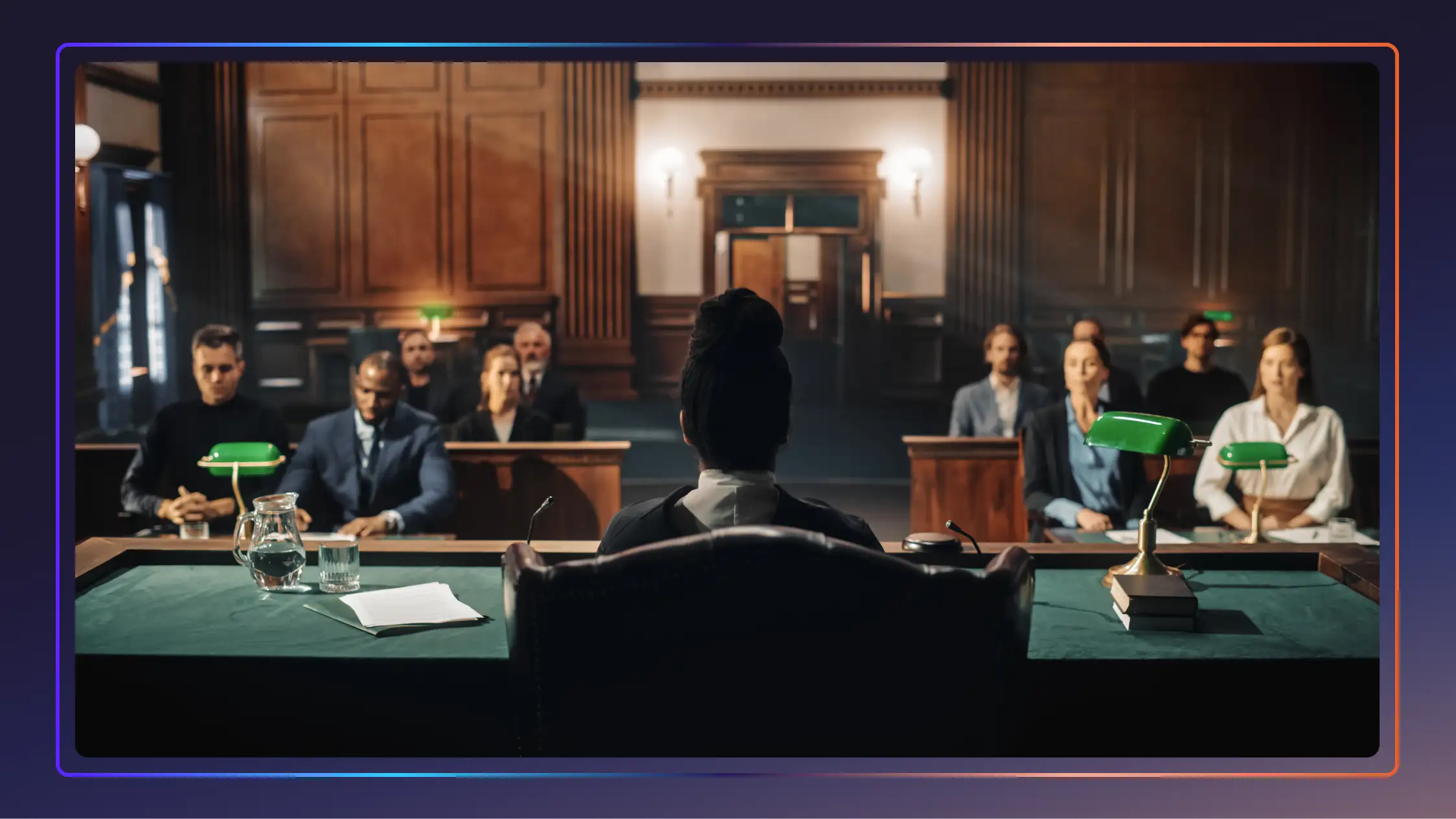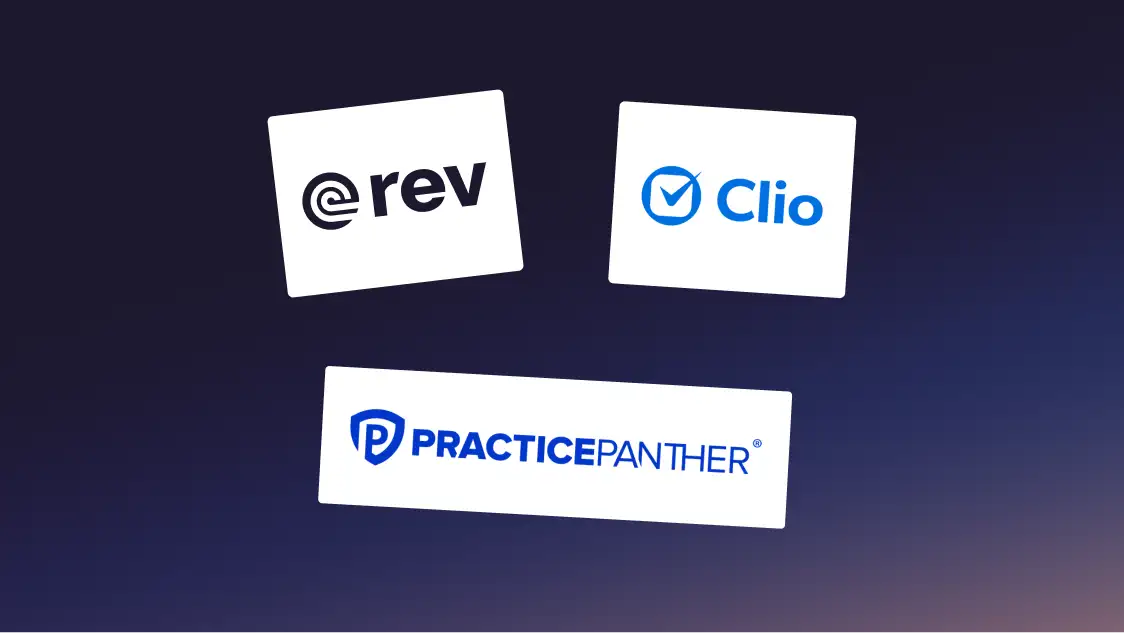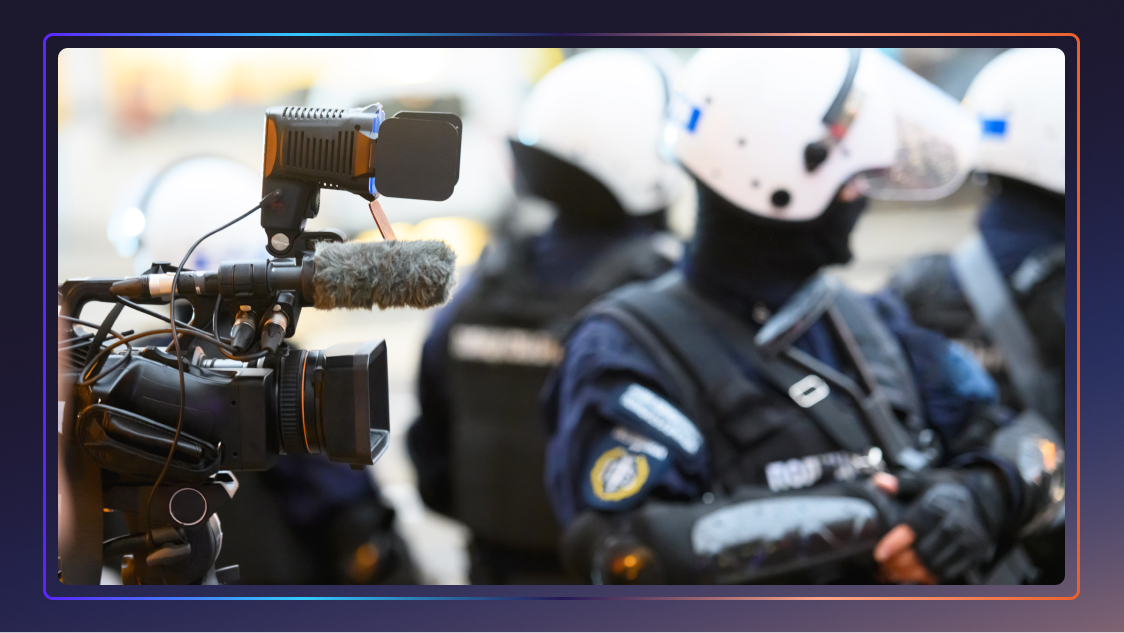Writing Good AI Prompts for Legal Transcripts
Discover a comprehensive guide to using AI prompting techniques with legal transcripts to win more cases.

The ability of attorneys to effectively leverage AI tools for tasks such as transcript analysis is no longer a futuristic notion but a tangible and increasingly crucial skill.
The law firm statistics speak volumes: with 50% of law firms citing exploring and implementing AI as their highest priority (Thomson Reuters, 2024), it's clear that embracing and mastering AI prompting techniques has transitioned from an optional advantage to an indispensable element of modern legal practice.
The attorneys who can skillfully guide these intelligent systems will be best positioned to navigate complex cases, uncover critical evidence, and ultimately, better serve their clients.
How AI Prompting Can Transform Your Legal Strategy
The sheer volume of transcription data generated in legal proceedings—whether stemming from lengthy depositions, detailed client intake calls, or comprehensive court records—often presents a significant challenge for legal teams. Manually sifting through hundreds, even thousands, of transcript pages to pinpoint crucial details can be an incredibly time-consuming and resource-intensive process, potentially leading to burnout or oversights of vital information.
This is where the strategic application of effective AI prompting emerges as a game-changer. By mastering the art of "speaking the language" of AI, attorneys gain the power to efficiently extract critical insights from these mountains of transcripts. Instead of being overwhelmed by the sheer volume, lawyers can leverage AI to swiftly identify case-winning nuances, subtle inconsistencies, and pivotal admissions that might otherwise remain buried deep within the extensive record of testimony. This ability to rapidly access and synthesize key information translates directly into a more informed, agile, and ultimately, more successful legal strategy.
Four Key Elements of Effective Legal AI Prompts
All AI prompts are not created equal. While AI and LLMs can be game changers in uncovering case-winning details, their efficacy relies on being able to use them to the best of their ability. That’s where AI prompting comes in. The better the prompt, the better the output from the AI.
In order to get what you need from AI, learning best practices to follow can help. When you’re getting started with using AI prompts to analyze your legal transcripts, start by focusing on these four essential components:
1. Persona: Define Your Role and Objective
Before engaging in any detailed analysis, it's crucial to clearly define your professional role and the specific objective you are pursuing. This initial step provides the AI with essential context, allowing it to tailor its responses and insights to your particular needs and perspective. By articulating who you are in this scenario and what you aim to accomplish, you set the stage for a more focused and productive interaction.
Let’s start with some bad examples:
- "Analyze this document."
- Who are you? What are you trying to achieve with this analysis?
- "As a human, I need to understand this better."
- States the obvious, doesn't define a professional role.
Instead, try prompts like this instead:
- "As a paralegal preparing for a motion for summary judgment, help me identify key admissions made by the plaintiff in these deposition transcripts that support our argument that there is no genuine issue of material fact."
- Why it’s good: Clearly defines a legal role and a specific legal objective – finding admissions for a legal motion.
- "I am a junior associate drafting a memorandum of law regarding a potential breach of contract claim. Analyze the attached contract and relevant case law to identify the essential elements of the claim and any potential defenses."
- Why it’s good: States a specific legal role and a concrete legal task – drafting a memo on a particular legal claim.
2. Task: Specify What You Need Precisely
To ensure the AI delivers the most relevant and actionable results, it's vital to clearly articulate the specific analytical task you require. Vague or general instructions can lead to broad and less helpful outputs. By providing precise details about the analysis you need performed on your data, you enable the AI to focus its capabilities and generate targeted findings that directly address your needs (and even strengthen relationships with your clients).
Let’s start with some bad examples:
- "Summarize what this witness said."
- Doesn't specify what aspect of the testimony is important.
- "Look for problems in this transcript."
- Lacks specific criteria for what constitutes a "problem."
Instead, try prompts like this instead:
- "Review these witness statements and list all instances where a witness provides testimony that contradicts a prior sworn affidavit, citing the specific paragraph and page numbers for each instance."
- Why it’s good: Asks for a very specific legal task — identifying contradictions with precise citations, which is crucial for legal analysis.
- "Review this witness statement to identify all the times that they mention interacting with the defendant, James Smith."
- Why it’s good: Requests a specific type of mention, related to the context of the case.
3. Context: Provide Relevant Case Details
To facilitate a deeper and more nuanced understanding, it's important to equip the AI with relevant background information pertaining to your situation. This context allows the AI to go beyond surface-level analysis and generate insights that are more directly applicable to your specific circumstances. By providing details about the case, project, or situation at hand, you enable the AI to connect the dots and offer more meaningful and strategically valuable findings.
This context might include the nature of the legal claim, key dates, involved parties, and specific legal arguments you are developing.
Let’s start with some bad examples:
- "It happened last year."
- Lacks crucial details like location, type of case, and key issues.
- "It's about a disagreement."
- Doesn't offer any specifics about the nature of the disagreement.
Instead, try adding context like this to your prompts instead:
- This involves a criminal defense case where the defendant is charged with theft. The transcript is a witness statement about an eyewitness, the owner of the gas station that was robbed.
- Why it’s good: Provides context for a criminal case, outlining the charge, the type of evidence involved, and the overall legal strategy.
4. Format: Specify How You Want Results Presented
To maximize the utility of the AI's output, it's important to clearly specify how you would like the findings to be presented. This ensures that the information is not only insightful but also readily accessible and integrates smoothly into your workflow.
Whether you require a structured report, a categorized list, or a visual representation, clearly communicating your formatting preferences allows the AI to deliver its analysis in a manner that best suits your needs.
Let’s start with some bad examples of format:
- "Give me the important stuff."
- Subjective and doesn't guide the AI on how to format the "important stuff."
- "However you want."
- While seemingly flexible, it doesn't help the AI understand your needs for usability.
- Sends a wall of text expectation without any formatting requests.
- While technically a lack of specification, it implies a raw output is acceptable, which might not be ideal.
Instead, try to add formatting tips like this to your prompts:
- Present the identified admissions as direct quotes, followed by the citation to the transcript.
- Why good: Requests a format that is directly usable in legal writing and argumentation, including proper citation and explanation of relevance.
- Create a chronological timeline of the events that occurred as related by the witness in this transcript, including citations to the transcript.
- Why good: asks for a specific format that AI can pull.
Practical Applications for Your Practice
Now that you understand the basics of prompting AI to help you understand your legal transcripts, let’s dig into specific ways to strategically use AI throughout the lifecycle of a case.
For Case Building and Preparation
Building a compelling case requires meticulous file organization and analysis of facts, timelines, and witness statements. AI can accelerate this process by rapidly identifying patterns and inconsistencies across multiple transcripts.
- Timeline construction: "Create a chronological timeline of all events mentioned in this witness testimony, noting where dates or times appear inconsistent."
- Fact pattern identification: "Identify all facts mentioned related to the plaintiff's injuries, including descriptions of pain, treatment sought, and impact on daily activities."
- Witness credibility analysis: "Highlight all instances where the witness changes their account, hesitates significantly before answering, or uses qualifying language like 'I think' or 'I believe.'"
For Deposition and Trial Preparation
Effective deposition and trial strategies depend on thorough preparation and anticipation of opposing arguments. AI can help attorneys prepare more comprehensive examination strategies by surfacing critical details from prior testimony.
- Contradiction identification: "Find all statements in this deposition that contradict the other witness’s account."
- Expert testimony analysis: "Extract all technical terminology used by the expert witness and organize by subject matter."
- Witness preparation: "Identify areas where this witness provided unclear or incomplete answers that opposing counsel might exploit during cross-examination."
Learn how to admit a deposition transcript into evidence on our blog.
For Discovery Review
The discovery phase often involves reviewing massive volumes of transcripts and documents. AI can dramatically reduce the time required while increasing the thoroughness of your review.
- Privilege assessment: "Flag all conversations that might be covered by attorney-client privilege based on participants and content."
- Evidence summarization: "Summarize the key pieces of evidence discussed in this transcript regarding the contract formation dispute."
- Key name extraction: "Create a list of all individuals mentioned in these transcripts, their relationships to the case, and in which context they were discussed."
Important Considerations When Using AI for Legal Work
While AI offers powerful capabilities for legal professionals, its use must be tempered with professional judgment and ethical considerations. As you integrate AI into your practice, keep these critical guidelines in mind to ensure responsible and effective implementation.
- Always verify AI outputs: While AI can identify patterns and save time, human review remains essential for accuracy and context.
- Maintain confidentiality: Ensure your AI usage complies with attorney-client privilege and confidentiality requirements.
- Use AI as a starting point: The AI's analysis should supplement, not replace, your professional judgment.
- Consider admissibility: Remember that AI-generated analyses may not be admissible in court without a proper foundation.
By using these structured prompting techniques, you can leverage AI to handle the initial heavy lifting of transcript analysis, allowing you to focus your expertise on strategy development and legal reasoning—the aspects of your work that truly require human judgment.
Elevating Your Legal Strategy With Rev's AI Capabilities
As you develop your AI prompting skills, Rev's advanced transcription and AI-powered analysis tools provide the perfect foundation for implementing these techniques in your legal practice. With industry-leading accuracy rates and specialized legal vocabulary recognition, Rev transforms your audio and video evidence into searchable, actionable text that serves as the reliable record your case strategy depends on.
Rev's multi-file insights feature takes this capability to the next level, allowing you to analyze patterns and contradictions across multiple transcripts simultaneously—whether from depositions, witness interviews, or expert testimony. By crafting effective prompts that leverage this cross-file analysis, you can quickly identify inconsistencies in testimony, track how key themes develop across multiple interviews, and build more comprehensive case narratives.
The AI assistant and customizable templates further enhance your ability to extract critical information at scale, helping you quickly identify decisive evidence that might otherwise remain buried in mountains of testimony. By combining your improved prompting skills with Rev's secure, SOC 2 Type II compliant platform, you can confidently analyze testimonies, prepare for depositions, and build stronger cases while maintaining the confidentiality your clients expect.
Try Rev’s transcription for law firms today to gain a competitive edge in your legal practice.












.webp)


